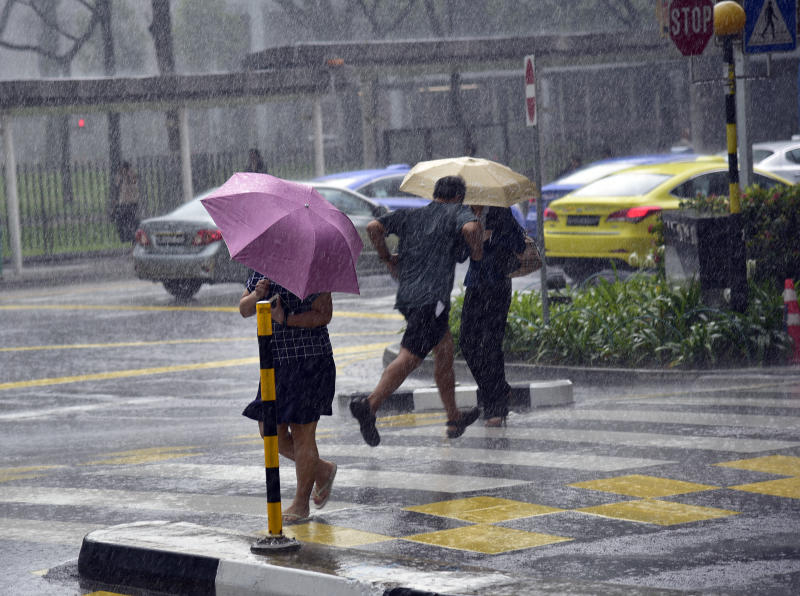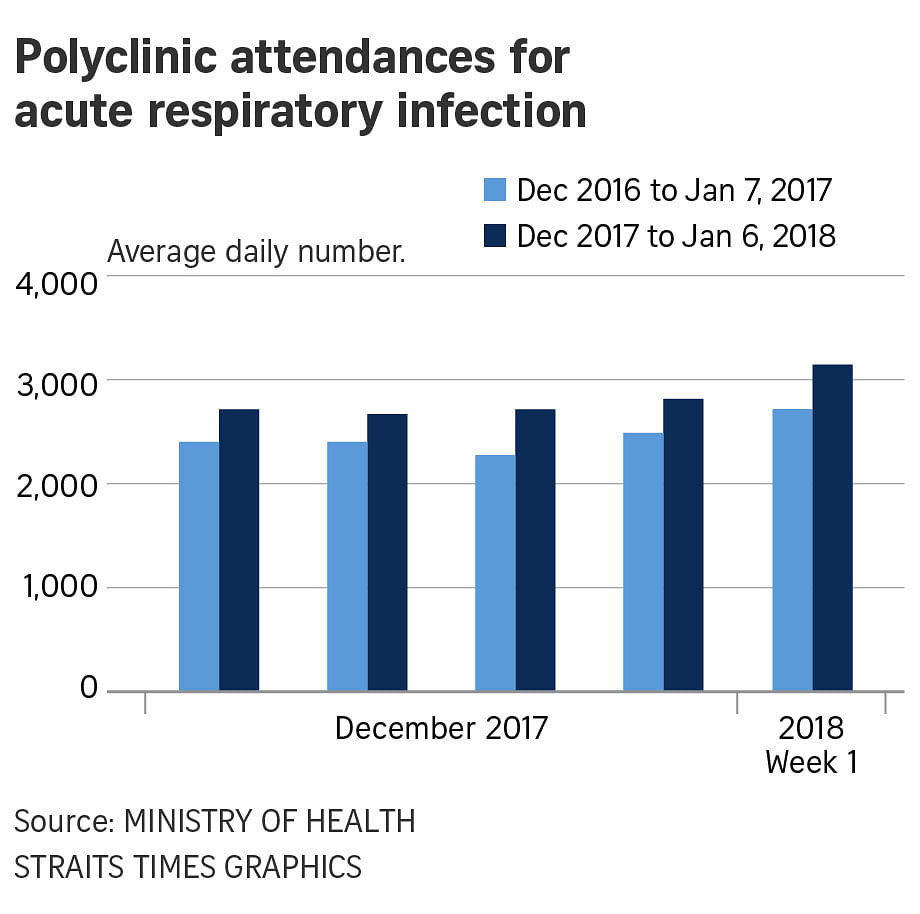Rainy weather may have extended the year-end flu season
Sign up now: Get ST's newsletters delivered to your inbox

The recent cold weather could have allowed viruses to survive longer, said a doctor.
PHOTO: ST FILE
SINGAPORE - The rainy weather probably caused the peak flu season to last a little longer than usual, say doctors.
The season usually runs from September to December, so there should be fewer cases of the flu by now, but the recent cold weather could have allowed viruses to survive longer, said Dr Lim Chien Wei, who is cluster head of Healthway Medical Group.
Polyclinics saw an average of 3,158 patients with acute respiratory infections every day in the first week of January, according to the Health Ministry. This is higher than the 2,836 patients seen in the same period in 2017. The last time the figure crossed the 3,000 mark was in October last year.
Dr Michael Wong, a family physician at Raffles Medical, said he has seen an increase in the number of patients with symptoms such as cough and nasal congestion in recent weeks, although he did not give numbers.
Dr Wong added that while a person cannot "catch a chill" and fall ill because of cold weather, the weather could be a factor in helping viruses to spread.
"Staying indoors increases the proximity between people," he said. "With the increased recycling of air indoors or in an air-conditioned environment, respiratory viruses have a higher incidence of spreading."
Dr Lim said: "When adults and children start going back to work and school after the holidays, the spread of viruses can become more prevalent."
Singapore has two peak flu seasons a year - one between April and June, and the one nearing its end now.

During these periods, Dr Lim said, he sees about 20 per cent to 30 per cent more patients with colds or the flu.
Influenza and the common cold are caused by viruses. However, influenza symptoms can be more severe and result in serious health problems such as pneumonia.
"Antibiotics are of no use against cold viruses, and are often not prescribed unless there is also a bacterial infection," said Dr Wong.
Instead, treatment is typically aimed at helping to alleviate the symptoms.
Those who are infected should drink plenty of fluids and practise proper hygiene so as not to spread the illness to those around them, say doctors.


